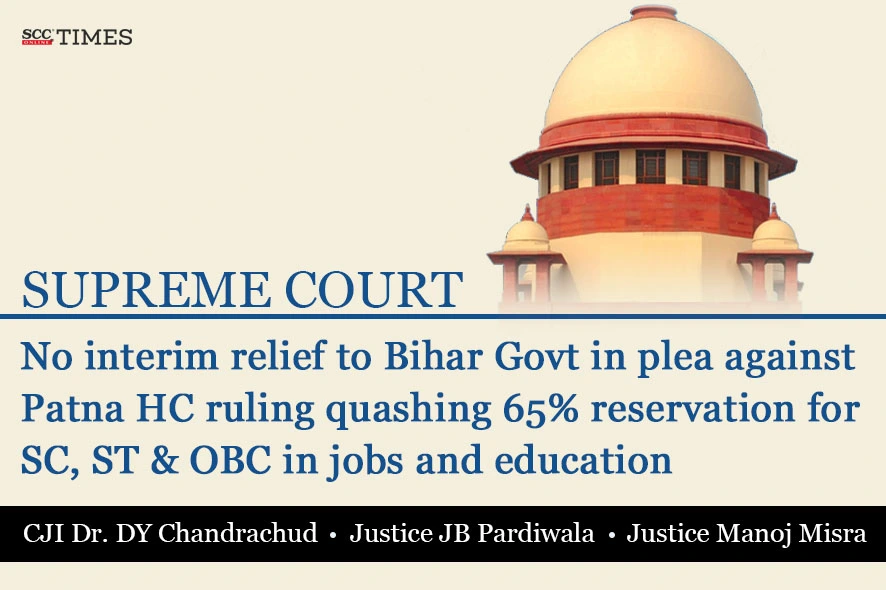Supreme Court: The three Judge Bench comprising of Chief Justice of India Dr. DY Chandrachud, JB Pardiwala and Manoj Misra, JJ. refused to stay the Patna High Court decision setting aside the Bihar Reservation of Vacancies in Posts and Services (for Scheduled Caste, Scheduled Tribes and Other Backward Classes) Amendment Act, 2023 and the Bihar Reservation (in Admission to Educational Institutions) Amendment Act, 2023 (‘collectively ‘Amendment Acts’) which increased the reservation for Backward Classes, Extremely Backward Classes, Scheduled Castes and Scheduled Tribes (SC/STs) from 50 % to 65 % in jobs and educational institutions.
The Bihar Government had moved before the Court challenging the High Court’s ruling.
The State had requested for an interim by way of staying the High Court’s judgment. However, the relief was refused to be granted at this stage.
Several petitions were filed before the High Court challenging the enhanced reservation to 65% within the State, irrespective of 50% limit prescribed in Indra Sawhney v. Union of India, 1992 Supp (3) SCC 217. The High Court opined that the cap of 50% was an inviolable rule and the rule of 50% limit in reservation applied to the Backward Classes, SCs, and STs, which was equally applicable under Articles 15(4) and 16(4) and in the present case, there were no extenuating circumstance enabling the State to breach the rule.
It was also laid down that the adequate representation was the core of Articles 15(4) and 16(4) of the Constitution and the exception provided, to exceed the 50% limit, was confined and restricted to extenuating circumstances and characteristically inherent aspects akin to far flung areas thus being kept away from the mainstream of National life. hence, the impugned Amendments were set aside for being ultra vires the Constitution and violative of the equality clause under Articles 14, 15, and 16 of the Constitution.
Source: Press






